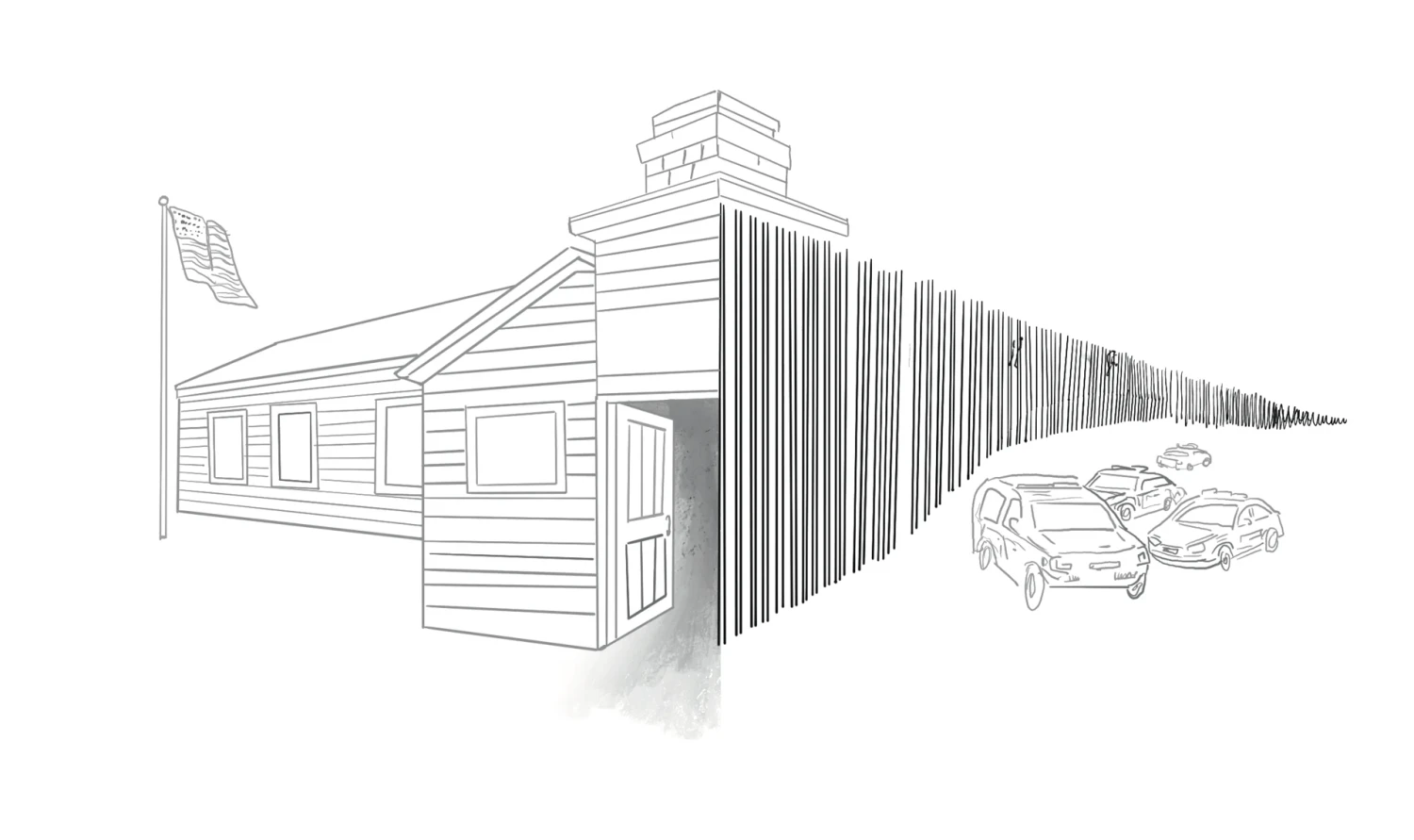- 14 3402-5578
- Rua Hygino Muzy Filho, 737, MARÍLIA - SP
- contato@latinoobservatory.org
 Jordi Amaral y Fernando Garlin Politis
Jordi Amaral y Fernando Garlin Politis
A special edition of the Americas Migration Brief, made in collaboration with artist and researcher Fernando Garlin Politis, explored the complexities of U.S. migration and border policies, focusing on the humanitarian parole program of the CHNV (Cuba, Haiti, Nicaragua, Venezuela). The program, which completed two years for Venezuelans in October 2024, offers protection to migrants from these countries, but faces challenges related to accessibility for the most vulnerable.
Despite being considered a success, the program had a temporary pause due to allegations of fraud among sponsors but was resumed by the Biden administration. Still, the future of CHNV is uncertain, especially given Donald Trump's possible victory in the upcoming elections, which would likely result in the program shutting down. On the other hand, if Kamala Harris wins, the program would continue, but there are still questions about how it would be structured.
Some CHNV beneficiaries find extra protection through other mechanisms, such as TPS (Temporary Protected Status) or the Cuban Adjustment Act. However, political uncertainty and legal issues could leave many migrants in limbo in the coming months, especially after the announcement that the status of stay of some participants will not be renewed after the two-year deadline, according to the edition.
The associated comic strip illustrates the obstacles faced by migrants
when trying to access the CHNV program and highlights the importance of the
Biden administration's recent decision to accept expired Venezuelan passports
for up to 10 years, which expands access to the program. The narrative
emphasizes the importance of safe and regular migration channels, especially at
a time of increased misinformation and stereotypes.











